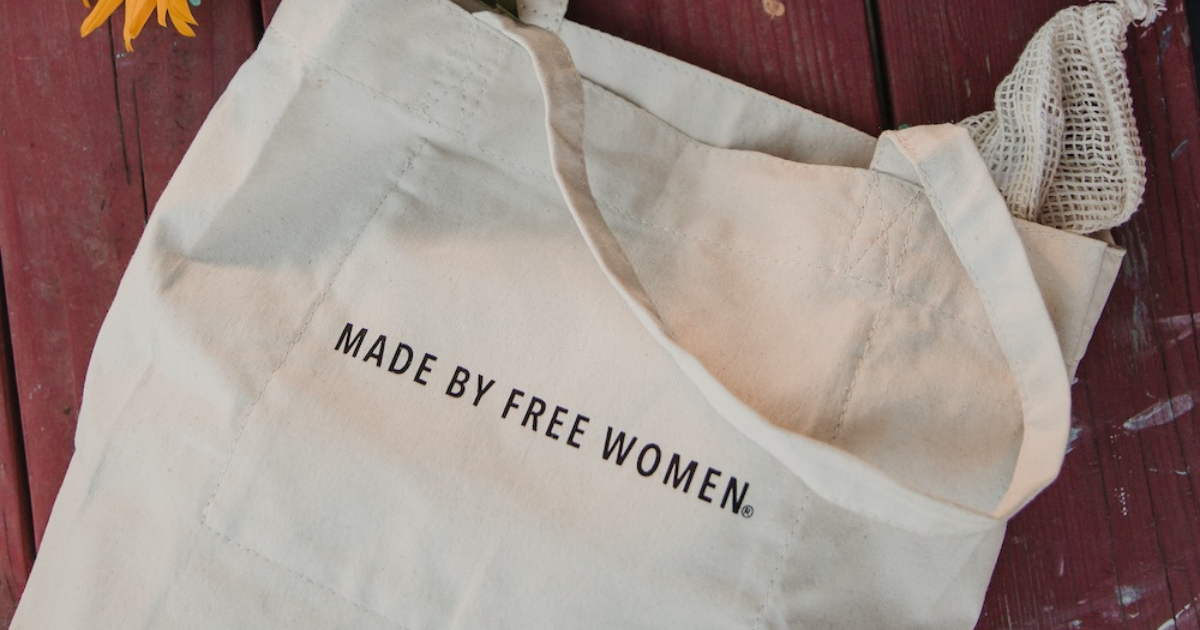
Every year, January 11th marks National Human Trafficking Awareness Day, a time to shed light on the pervasive issue of modern slavery and mobilize efforts to combat it. With over 49.6 million people trapped in modern slavery worldwide, this day serves as a critical reminder of the work needed to protect vulnerable individuals and dismantle the systems that enable trafficking.
Human trafficking isn’t confined to distant corners of the world—it affects communities globally, fueled by poverty, inequality, and unchecked demand in industries like fashion and manufacturing. By understanding the scope of this crisis and choosing ethical practices, we can take meaningful steps toward a world free from exploitation.
Why National Human Trafficking Awareness Day Matters

Human trafficking—defined as the recruitment, transportation, or exploitation of individuals through force, fraud, or coercion—is a global crisis. Victims are often lured by false promises of work, education, or a better life, only to find themselves trapped in forced labor, sexual exploitation, or debt bondage. It is one of the fastest-growing criminal industries, generating an estimated $150 billion annually (Hope For Justice).
Key Global Stats from Walk Free’s Global Slavery Index:
- Over 49.6 million people live in modern slavery globally, with 27.6 million subjected to forced labor. (Walk Free)
- Women and girls are disproportionately affected, comprising 54% of victims and often enduring both labor and sexual exploitation. (International Labour Organization)
- Poverty remains a key driver of vulnerability, with traffickers targeting individuals desperate for work or security.
This systemic exploitation creates a vicious cycle of poverty and abuse, where vulnerable communities are stripped of their dignity, safety, and basic human rights. National Human Trafficking Awareness Day shines a spotlight on these staggering figures, encouraging education, advocacy, and action to combat this systemic injustice.
Human Trafficking and the Fashion Industry

Photo: Co-Founder Brad Jeffery looking over Sonagachi, considered the largest redlight district in South Asia.
The fashion industry plays a significant role in perpetuating forced labor and human trafficking. While the focus often falls on eco-friendly materials, the true cost of fast fashion lies in its exploitative labor practices:
- Hidden Exploitation: Workers in garment factories, often women, face grueling hours, unsafe conditions, and minimal pay.
- Supply Chain Issues: Complex and opaque supply chains make it easy for brands to overlook—or ignore—trafficking and forced labor in their production processes.
- Fast Fashion’s Impact: The relentless demand for cheap, trendy clothing perpetuates exploitation, creating a system where profits are prioritized over people.
True sustainability requires addressing these injustices, ensuring ethical practices throughout the entire supply chain.
You might also like: Why is fast fashion so cheap?
MADE FREE: Fighting Modern Slavery with Ethical Job Creation
At MADE FREE, we believe the most powerful way to combat human trafficking is by addressing its root causes: poverty, inequality, and exploitation. Our mission is simple but profound: to create dignified, sustainable jobs for artisans, providing them with the financial independence and stability needed to escape vulnerability.

How the MADE FREE Model Works:
- One Day of Freedom with Every Purchase: Every product sold through MADE FREE supports one day of freedom for a maker. This means fair wages, safe working conditions, and the opportunity to break free from cycles of poverty.
- Empowering Women Artisans: Since women are disproportionately affected by trafficking, many of our artisans are women working to create better lives for themselves and their families. By offering steady employment, we help reduce their vulnerability to exploitation.
- Transparency and Ethical Practices: MADE FREE ensures full traceability in its supply chain, upholding the highest standards of fairness and sustainability in every step—from material sourcing to final production.
- A Mission for Impact: Our ultimate goal? To create one million days of freedom through ethical job creation, promoting a sustainable and equitable future for all.
You might also like: How to determine a living wage
Sustainability: More Than Materials
True sustainability goes beyond eco-friendly fabrics. While MADE FREE uses materials like recycled water bottles and vegetable-tanned leather, our approach also addresses:
- Ethical Labor Practices: Ensuring fair wages, safe conditions, and respect for workers’ rights.
- Environmental Impact: Minimizing waste, reducing carbon footprints, and promoting durable, long-lasting products.
- Social Equity: Empowering artisans to achieve financial stability and independence, breaking the cycle of poverty.
By choosing MADE FREE, you’re not just purchasing a product—you’re investing in a solution.
Learn More about the MADE FREE Model
What You Can Do to Help
National Human Trafficking Awareness Day is a call to action for individuals and communities to take a stand. Here’s how you can contribute:
- Educate Yourself and Others: Learn more about human trafficking and share this knowledge with your community. The United Nations Office on Drugs and Crime (UNODC) provides extensive resources on this topic .
- Support Ethical Brands: Choose to buy products from transparent companies that are committed to ethical practices and fair trade.
- Advocate for Change: Support policies and legislation aimed at combating human trafficking and protecting victims. Organizations like Polaris work tirelessly to influence policy and provide support to victims .
- Volunteer and Donate: Contribute your time or resources to organizations working to end human trafficking and support survivors. Groups such as the International Justice Mission (IJM) are always in need of support.
Hope for a Future Without Trafficking
While the scale of human trafficking is daunting, solutions are within reach. By staying informed, advocating for justice, and choosing ethical brands, you become part of a movement that prioritizes freedom and dignity for all.
This National Human Trafficking Awareness Day, take a stand. Choose to shop with purpose, support fair labor practices, and raise awareness about the global fight against exploitation. Every individual has the opportunity to live and work in freedom.






0 comments